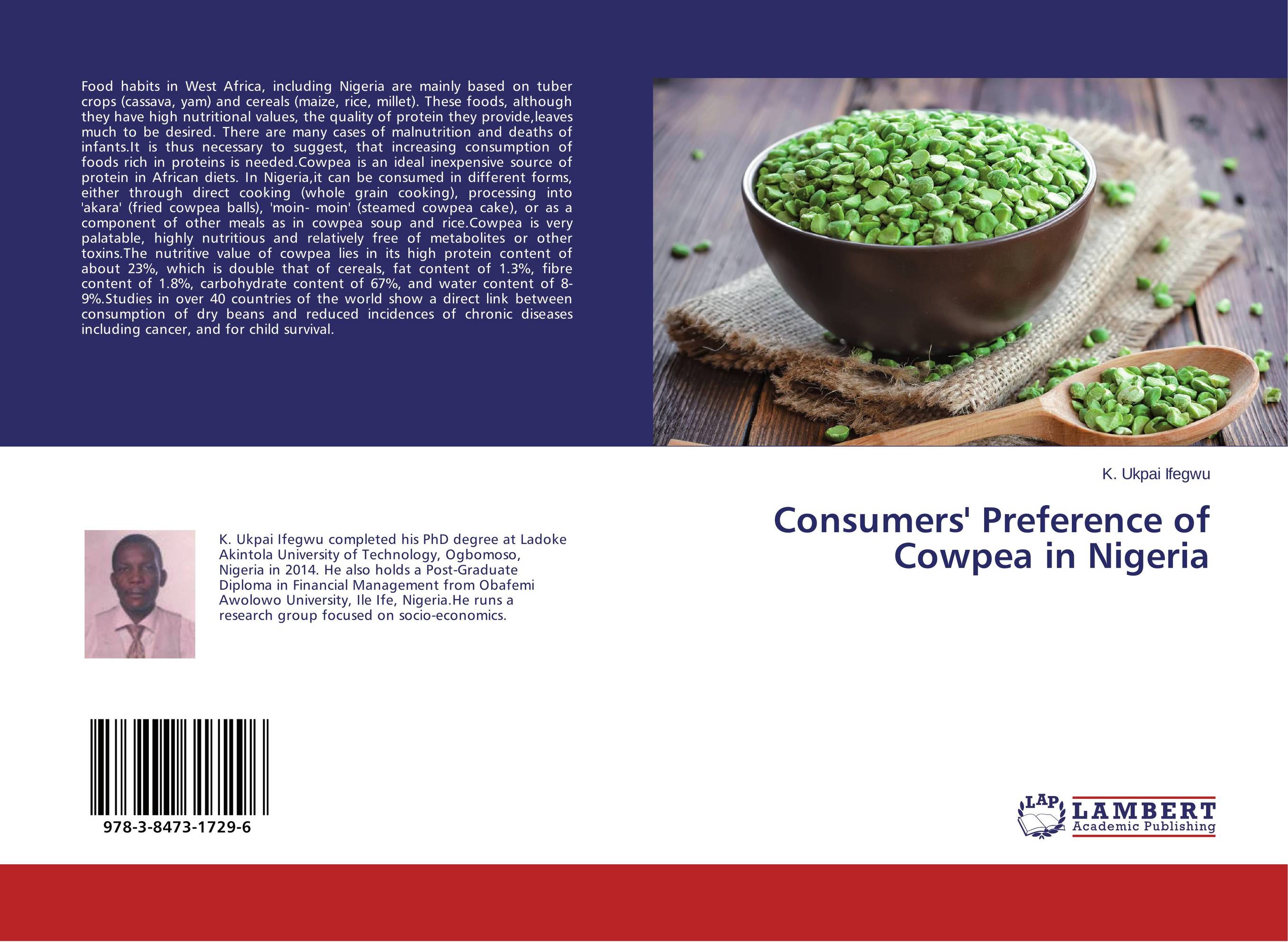| Поиск по каталогу |
|
(строгое соответствие)
|
- Профессиональная
- Научно-популярная
- Художественная
- Публицистика
- Детская
- Искусство
- Хобби, семья, дом
- Спорт
- Путеводители
- Блокноты, тетради, открытки
Consumers' Preference of Cowpea in Nigeria.

В наличии
| Местонахождение: Алматы | Состояние экземпляра: новый |

Бумажная
версия
версия
Автор: K. Ukpai Ifegwu
ISBN: 9783847317296
Год издания: 2015
Формат книги: 60×90/16 (145×215 мм)
Количество страниц: 72
Издательство: LAP LAMBERT Academic Publishing
Цена: 25408 тг
Положить в корзину
Позиции в рубрикаторе
Отрасли экономики:Код товара: 113623
| Способы доставки в город Алматы * комплектация (срок до отгрузки) не более 2 рабочих дней |
| Самовывоз из города Алматы (пункты самовывоза партнёра CDEK) |
| Курьерская доставка CDEK из города Москва |
| Доставка Почтой России из города Москва |
Аннотация: Food habits in West Africa, including Nigeria are mainly based on tuber crops (cassava, yam) and cereals (maize, rice, millet). These foods, although they have high nutritional values, the quality of protein they provide,leaves much to be desired. There are many cases of malnutrition and deaths of infants.It is thus necessary to suggest, that increasing consumption of foods rich in proteins is needed.Cowpea is an ideal inexpensive source of protein in African diets. In Nigeria,it can be consumed in different forms, either through direct cooking (whole grain cooking), processing into 'akara' (fried cowpea balls), 'moin- moin' (steamed cowpea cake), or as a component of other meals as in cowpea soup and rice.Cowpea is very palatable, highly nutritious and relatively free of metabolites or other toxins.The nutritive value of cowpea lies in its high protein content of about 23%, which is double that of cereals, fat content of 1.3%, fibre content of 1.8%, carbohydrate content of 67%, and water content of 8-9%.Studies in over 40 countries of the world show a direct link between consumption of dry beans and reduced incidences of chronic diseases including cancer, and for child survival.
Ключевые слова: Consumers, Hedonic pricing, Nigeria, Cowpeas



